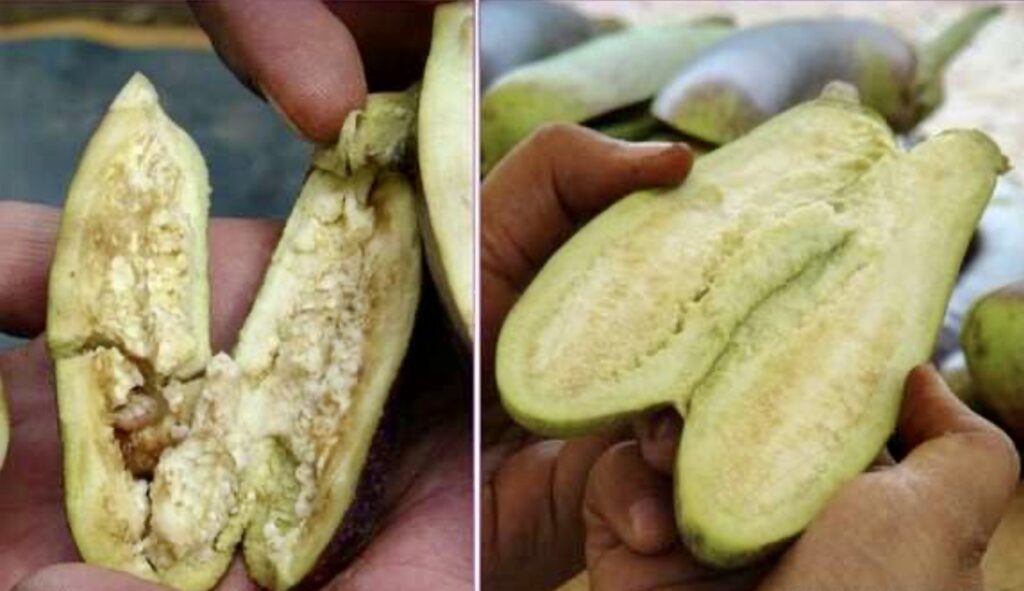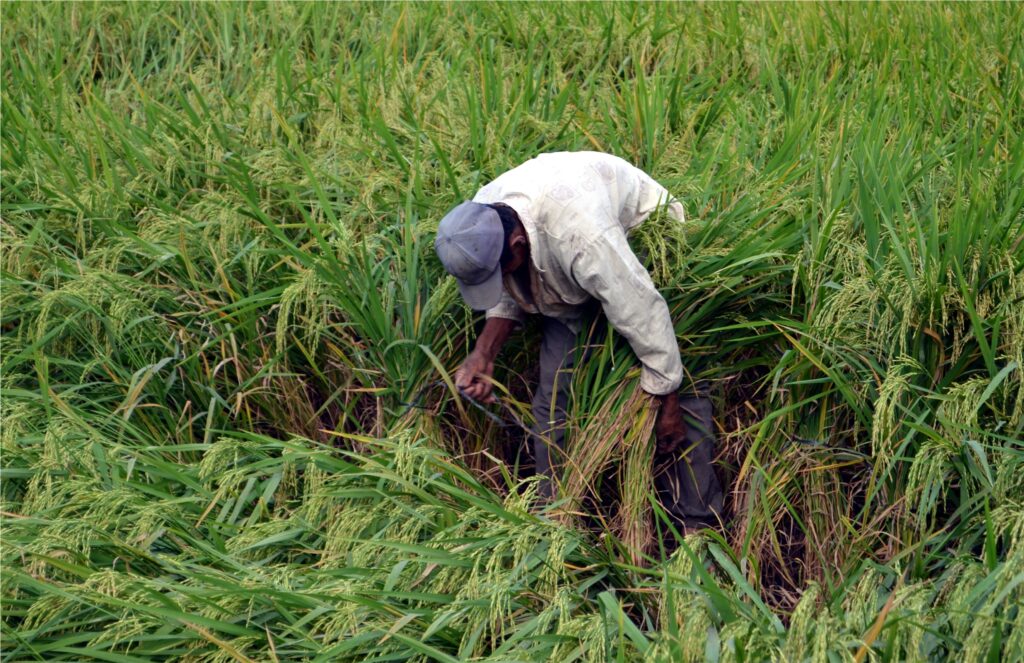Text by Henrylito D. Tacio
Photos: IRRI and ISAAA
Patience is indeed a virtue.
Several years after waiting for the availability of golden rice for commercial production, Filipino farmers can now grow it in their farms. As for the transgenic eggplant, they have to wait a little while since it has just been approved for direct use as food, feed, or for processing (FFP).
“This makes Filipinos closer to harvesting the projected benefits of these biotech crops soon,” said the Laguna-based Southeast Asian Regional Center for Graduate Study and Research in Agriculture (SEARCA) in a statement.
Last July 21, 2021, the Bureau of Plant Industry (BPI) – a line agency of the Department of Agriculture – issued a biosafety permit for golden rice. This simply means the DA and the Philippine Rice Research Institute (PhilRice) can now proceed with the production of golden rice seeds on a commercial scale.
The FFP approval for golden rice was done in December 2019. Golden rice, as pointed out by SEARCA, is “the first genetically engineered rice in South and Southeast Asia to be authorized for commercial propagation.”
Golden rice is a new type of rice that contains beta carotene (provitamin A, a plant pigment that the body converts into vitamin A as needed). This compound is what gives this grain its yellow-orange or golden color, hence its name.
“Golden rice is developed through genetic engineering,” explains the International Rice Research Institute (IRRI). “While the ordinary rice does produce beta carotene, it is not found in the grain. Thus, scientists used genetic engineering to add the compound to the grain – a minor tweak that improved the grain’s nutritive value.”
The beta carotene in golden rice, which was made possible by the addition of two new enzymes, is identical to the beta carotene found in green leafy and yellow-colored vegetables, orange-colored fruits, and even in many vitamin supplements and food ingredients.
SEARCA said golden rice intends to complement existing interventions to address vitamin A deficiency (VAD). Current approaches (such as vitamin A supplementation, food fortification, diet diversification, and promotion of optimal breastfeeding) have made some successes in combating VAD.
“However, more work is necessary to address the needs of certain target populations, especially those in remote areas,” says the IRRI, which has been at the forefront in developing the golden rice. “Additionally, millions continue to suffer from VAD to this day.”
VAD is a serious public health problem affecting 250 million people worldwide, primarily children and pregnant women. In the Philippines, VAD incidence continues to be a significant public health issue affecting almost 17% or 2 million children under the age of five.
Since golden rice has already been issued a biosafety permit, the next step is seeking varietal registration from the National Seed Industry Council (NSIC). To ensure that golden rice will be accessible for Filipino farmers, PhilRice and IRRI are now developing golden rice versions of existing rice varieties with the same yield, pest resistance, and grain qualities.
IRRI says Filipino farmers won’t have a problem planting golden rice in their farms. “Golden rice is not expected to require any changes in farm management or cultivation practices,” IRRI assures.
“Everything about local cultivation practices currently followed for conventional rice varieties, including the application of fertilizer, crop protection products, and labor, are directly applicable to the cultivation of golden rice,” IRRI adds.
As for Bt eggplant, it has been given an FFP approval, which the International Service for the Acquisition of Agri-Biotech Applications (ISAAA) considered as a “milestone in the biosafety regulatory process in the Philippines.
“To complete the biosafety regulatory process,” ISAAA states, “Bt eggplant will need commercial propagation approval for environmental safety assessment before it can be made available to the public.”

Ordinary eggplant and Bt eggplant (ISAAA) 
Rice production
Bt stands for Bacillus thuringiensis, a common soil bacterium which produces a protein that paralyzes the larvae of some harmful insects. In eggplant, the pest that causes so much damage is the eggplant fruit and shoot borer (EFSB). It feeds almost exclusively on eggplant. An entire crop can be lost from EFSB infestation, studies show.
Led by scientists from the Institute of Plant Breeding (IBP) of the University of the Philippines at Los Baños (UPLB), Bt eggplant was developed using modern biotechnology techniques by introducing a Bt gene to the common eggplant.
Dr. Lourdes D. Taylo, study leader of the Bt eggplant project from UPLB, says Bt protein affects EFSB worms only and is safe for humans, farm animals, and non-target insects. “Bt eggplant is safe as it only targets EFSB,” she says.
“With lesser cost for pesticides and labor and increase in production, Filipino farmers are projected to gain a net increase benefit of around PhP50,000 per hectare by planting Bt eggplant compared to the current eggplant variety,” SEARCA said.
Potential farmer-adopters from major eggplant-producing provinces like Laguna and Pangasinan are now waiting for its approval for commercialization. “We are hoping it will be released soon so that we can benefit from it already,” some farmers told ISAAA.
SEARCA Director Glenn B. Gregorio is very much ecstatic with these recent developments.
“As a fellow plant breeder, and geneticist, I share the joy in achieving these milestones or I may say gold medals for the Philippines,” said Dr. Gregorio, who is an academician with the National Academy of Science and Technology. “This does not only bring the benefits of these biotech crops closer to many Filipinos, it also opens the door for more work in finding safe, effective, sustainable, and innovative solutions to our society’s pressing problems.”
For its part, SEARCA “remains committed to working with them and with various partners in making highly credible, science-based information on agricultural innovations like golden rice and Bt eggplant available and understandable for our stakeholders – for farmers and consumers in areas that need it the most,” he stresses.

